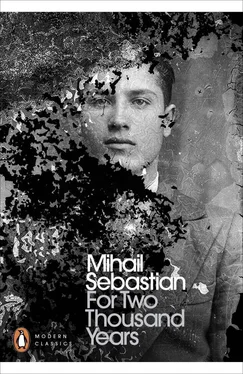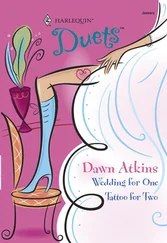Sometimes at the professor’s course I feel like we’re gathered together in a kind of ideological headquarters of an immense world war, waiting from hour to hour for telegrams about the catastrophe, dreaming of the new world that will be born from its ashes.
For the moment, beneath the surface, the old strata silently shift. Ghiţă Blidaru has a fine sense of hearing.
The first telegram from Uioara didn’t look too serious. ‘Men at Well A 19 refusing to work.’ It’s not the first time. The only thing that strikes me as odd is the sending of a telegram when so many telephone lines are free. At the offices in Piaţa Rosetti, however, everybody was calm.
An attempt was made in the afternoon to make contact with Uioara, but it proved impossible. The operator in Câmpina gave the same response for an hour: ‘Uioara is not replying. Probably there’s a fault with the line.’ It was quite plausible, but I found it suspicious. ‘Perhaps you should warn old Ralph,’ I suggested half seriously. They laughed. ‘Where will we look for him? We’d have to search all Europe. Anyway, we can’t trouble him for every trifle.’
At seven that evening Hacker, from accounting, burst into the office. He’d come straight from Uioara, with two punctured tyres, an overheated engine about to ignite, a shattered windscreen and the half the hood torn away. I was at the workshop and was immediately called to Piaţa Rosetti. En route, the master was silent and pale.
Truth told, Hacker’s news was less alarming than the figure he cut. He had been imprudent enough to pass through New Uioara, where people protested with a bit of stone-throwing, which is really nothing serious. The real danger, should it arise, is Old Uioara, where the wells and refinery are. But at that point there were just the beginnings of a more than usually contentious strike.
‘I fear for the refinery,’ said Hacker. ‘They’d all gathered there in big groups, talking. The ones from the refinery were still working when I left, but who knows what’s happened since then? Or even if anyone’s left at the factory, so that we have electricity. Lord preserve us from darkness! I think it’s just what the plum brandy drinkers of New Uioara are waiting for. It was them who cut the phone lines.’
I waited all night for news. Not from Uioara, which we were definitively out of contact with, but from the Interior Ministry and Prahova Prefecture. There was a terrible commotion at the office. Marjorie had come too, with Marin. She was very concerned, yet self-controlled. She was absolutely determined to leave immediately for Uioara, with Hacker’s car, which she said she’d drive on her own.
The master had a faraway look. Just once he said to me: ‘I’d be sad if they went and destroyed Uioara on us.’
*
The morning papers are alarmist and confused. Nobody knows exactly what’s going on. Two directors from the office have gone to negotiate, accompanied by a Ministry of Labour representative and preceded by platoons of police. Certainly, things could settle down if it were just a labour dispute. Is that all it is? I doubt it.
However vague the information we’ve received is so far, it seems there are two distinct movements in Uioara, though they’re both caught up in the same storm. The first group is made up of refinery, factory and oil workers, all from Old Uioara. Then there are the viticulturists in New Uioara. The first group have wage demands, while the second group ask for nothing. They just want to go down to Old Uioara and destroy it. The oil revolt and the plum-tree revolt.
There’s unanimous enthusiasm at the Central. On Calea Victoriei, a rumble of war. It’s coming! It’s coming! It’s coming! What is? Revolution, obviously.
This morning, speaking to me, Ştefan Pârlea looked transfigured.
‘You know, I feel our moment has come. I feel we’re about to leave mediocrity behind. Leave it behind, even though we pass through blood, through flames. There’s no other way. We’ll be stifled otherwise. When you’re suffocating in a house filled with gas fumes you don’t waste time opening the windows: you smash them.’
*
The master, Dronţu and I tried to slip off to Uioara in Hacker’s Ford, which has nothing to lose anyway. But it was impossible. At Câmpina we were turned back by the police.
What has happened beyond there? Nobody knows. The most sinister rumours are going around. That the peasants from New Uioara have burned down the refinery, that they’ve emptied the fuel tanks, flooding the whole internal line with crude, that they’ve barricaded the Americans in the offices, that they’ve attacked the police with rocks, that the police opened fire, that sixty people are dead …
A moment of crisis! A moment of crisis! It’s as though I hear S.T.H.’s voice.
*
Vieru is depressed. He believed the project at Uioara was something enduring, and now this unexpected brush with disaster disorients him. So many years of work wiped out in a night, in a moment. If the reports of a fire are confirmed, then what will be left for those who built it? A few plans, a few photographs …
Ghiţă Blidaru is triumphing. But he is not acting proud and I don’t believe he’s pleased. He came to the workshop to see the master and I was surprised by his anxious expression.
‘Have you won?’ Vieru asked him, trying to laugh.
‘Not yet, unfortunately. It takes more than a fire to make a revolution. What’s happening now in Uioara is certainly in the natural order of things. For ten years the wells have spoken, and now it’s the turn of the plum trees. Their voices are older, and so they had to make themselves heard. But let’s not fool ourselves. It’s still not enough. We need to burn down a whole history, not just three oil wells. There are so many things left to destroy that Uioara resolves nothing. We’re only at the beginning.’
*
Eva Nicholson turned up at the offices in spectacular fashion. She came on her own in a two-seater car and in two hours will head back. She’s wearing a sports suit over which she’s thrown a mackintosh. She’s pale, calm and very tired, but completely unemotional.
‘I’ve come to buy cotton wool, iodine lotion and bandages. There’s a need for them there. I couldn’t buy them in Ploieşti, where I would have caused suspicion.’
‘My dear lady, are you siding with the insurgents?’ asked somebody from management.
‘They’re not insurgents; they’re the injured.’
In any case, things at Uioara aren’t so bad after all. Eva Nicholson has reassured us. First of all, nothing has been destroyed, or almost nothing. Things have been stolen here and there, and there’s been a disturbance. The police opened fire. The workers locked themselves into the factory and refinery. If they don’t leave within twenty-four hours, the police will open fire again. Within three days, it’ll all be sorted out.
*
Peace. Old Ralph T. Rice arrived yesterday. The latest bulletin from Uioara announces the evacuation of all the buildings. For now, the ‘instigators’ are being weeded out and made an example of. Work could restart next week at the wells and the refinery. Work has begun already at the power plant with a reduced staff. An Interior Ministry statement mentions four fatalities and several injured. But terrible things are whispered of.
Several times I’ve attempted to work, but it all feels irrelevant. You’re on a sinking boat. What’s the point of keeping to your post? Disasters aren’t organized events — you just have to manage.
Never have my room, my books and my maps seemed more intolerable to me. I’ve always believed that the only defeats and victories that matter in life are those you lose or win alone, against yourself. I have always believed it my right to have a locked door between me and the world, and to hold the key myself. Now look at it, kicked open. The doors are off their hinges, the portals unguarded, every cover blown.
Читать дальше












